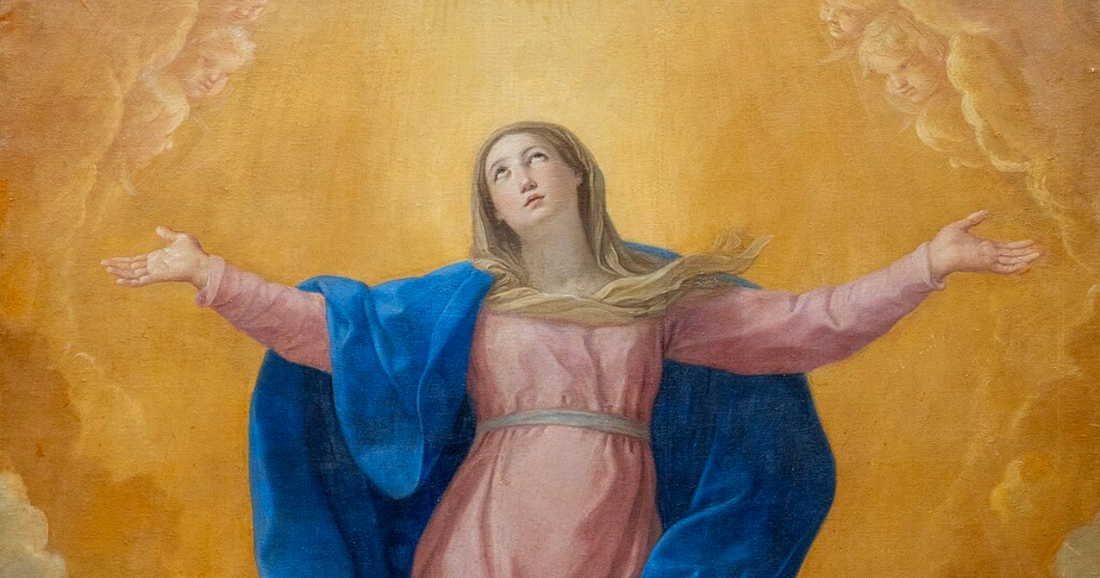
What Catholics Actually Believe About Mary
The Ascension TeamDo you know what Catholics actually believe about Mary? There can be a lot of misunderstanding when it comes to the Catholic Church's teachings on Mary. Michael Gormley and Dave VanVickle go through the Marian dogmas and explain each one so as to better equip you in your evangelization.
Snippet from the Show
Mary represents what the fullness of grace can do in the life of a creature.
The Marian Dogmas
Theotokos
The Nestorian heresy regarded Christ as a human person joined to the divine person of God's Son. Opposing this heresy, St. Cyril of Alexandria and the third ecumenical council, at Ephesus in 431, confessed "that the Word, uniting to himself in his person the flesh animated by a rational soul, became man." Christ's humanity has no other subject than the divine person of the Son of God, who assumed it and made it his own, from his conception. For this reason the Council of Ephesus proclaimed in 431 that Mary truly became the Mother of God by the human conception of the Son of God in her womb: "Mother of God, not that the nature of the Word or his divinity received the beginning of its existence from the holy Virgin, but that, since the holy body, animated by a rational soul, which the Word of God united to himself according to the hypostasis, was born from her, the Word is said to be born according to the flesh" (Catechism of the Catholic Church, 466)
Called in the Gospels "the mother of Jesus", Mary is acclaimed by Elizabeth, at the prompting of the Spirit and even before the birth of her son, as "the mother of my Lord". In fact, the One whom she conceived as man by the Holy Spirit, who truly became her Son according to the flesh, was none other than the Father's eternal Son, the second person of the Holy Trinity. Hence the Church confesses that Mary is truly "Mother of God" (Theotokos) (CCC, 495).
Mary’s Perpetual Virginity
The deepening of faith in the virginal motherhood led the Church to confess Mary's real and perpetual virginity even in the act of giving birth to the Son of God made man. In fact, Christ's birth "did not diminish his mother's virginal integrity but sanctified it." And so the liturgy of the Church celebrates Mary as Aeiparthenos, the "Ever-virgin" (CCC, 499).
Against this doctrine the objection is sometimes raised that the Bible mentions brothers and sisters of Jesus. The Church has always understood these passages as not referring to other children of the Virgin Mary. In fact James and Joseph, "brothers of Jesus", are the sons of another Mary, a disciple of Christ, whom St. Matthew significantly calls "the other Mary". They are close relations of Jesus, according to an Old Testament expression (CCC, 500)
Mary’s Immaculate Conception
Through the centuries the Church has become ever more aware that Mary, "full of grace" through God, was redeemed from the moment of her conception. That is what the dogma of the Immaculate Conception confesses, as Pope Pius IX proclaimed in 1854:
The most Blessed Virgin Mary was, from the first moment of her conception, by a singular grace and privilege of almighty God and by virtue of the merits of Jesus Christ, Savior of the human race, preserved immune from all stain of original sin. (CCC, 491)
Mary’s Assumption
"Finally the Immaculate Virgin, preserved free from all stain of original sin, when the course of her earthly life was finished, was taken up body and soul into heavenly glory, and exalted by the Lord as Queen over all things, so that she might be the more fully conformed to her Son, the Lord of lords and conqueror of sin and death." The Assumption of the Blessed Virgin is a singular participation in her Son's Resurrection and an anticipation of the resurrection of other Christians:
In giving birth you kept your virginity; in your Dormition you did not leave the world, O Mother of God, but were joined to the source of Life. You conceived the living God and, by your prayers, will deliver our souls from death (CCC, 966).